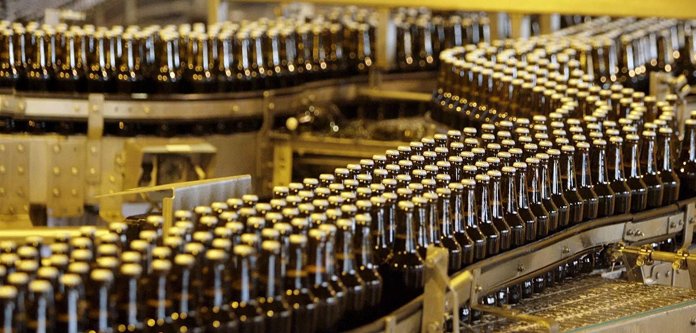Diageo has announced a £180 million commitment to a renewable future in Africa, an environmental investment that will deliver new solar energy, biomass power and water recovery processes across 11 of its African brewing sites. The move is focused on reducing its carbon footprint and addressing climate change.
The initiatives include an upfront capital investment programme of £50m million in solar, water treatment and biomass equipment followed by further long-term commitments for the ongoing maintenance and operations. This will include the fuel supply for six new biomass boilers with locally sourced renewable fuel.
The funding will deliver new infrastructure designed to have a significant impact on the long-term sustainability of Diageo’s African supply chain in seven countries. The investment includes:
- a commitment to switch to renewable energy at three African breweries in Kenya and Uganda. New biomass boilers will replace heavy fuel oil using sustainable fuel alternatives such as wood chip, bamboo and rice husks to create steam power for the breweries, reducing carbon emissions by 42,000 tonnes a year. The investment will also help create over 900 direct and indirect jobs throughout the supply chain particularly with local farmers providing the biomass fuel.
READ: Kenya’s best company in Renewable Energy named
- new water recovery, purification and reuse facilities across five sites in Africa, including Kenya, Uganda and Nigeria, saving over two billion cubic litres of water a year.
- solar installations to provide renewable electricity at a dozen breweries across six countries, starting with Kenya and Ghana. These solar panels will produce up to 20% of each brewery’s electricity demand.
In total the commitment will cover 11 sites in seven countries, (Kenya, Uganda, Tanzania, South Africa, Seychelles, Nigeria and Ghana). In Kenya, Diageo’s brand-new brewery in Kisumu, already has solar power and water treatment facilities installed to ensure its operations have minimal impact from the start. While elsewhere in Kenya at Tusker, with 100% renewables and cutting-edge water efficiency, we believe the site will become the most environmentally sustainable brewery in Sub-Saharan Africa.
Diageo Chief Executive, Ivan Menezes, said: “We believe this is one of the biggest single investments in addressing climate change issues across multiple sub Saharan markets. It demonstrates the strength of our commitment to minimise our environmental impact and crucially take action. We have a responsibility as a local manufacturer and employer in Africa to grow our business sustainably – creating shared value – and this significant investment continues our work to pioneer sustainable solutions for our local supply chains.”
ALSO READ: Nigeria’s Renewable Energy Master Plan to receive EU funding
He added: “We’ve set ourselves ambitious environmental targets, aligned with the United Nations global SDG’si, and our efforts to deliver on these by 2020 continues at pace. Progress has included a 45% reduction in our carbon emissions and a 44% improvement in water efficiency over the past decade or so. We are also now looking to the future and how we extend beyond 2020 with this commitment.”

